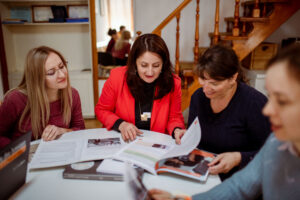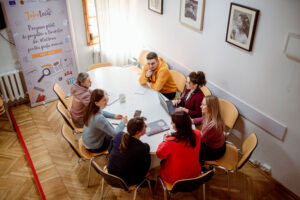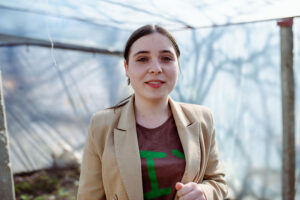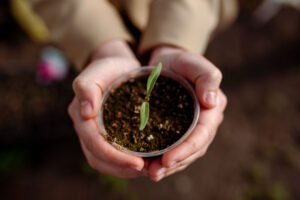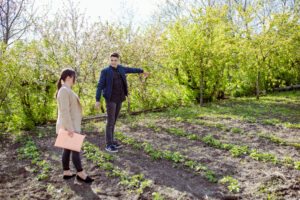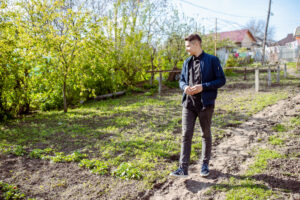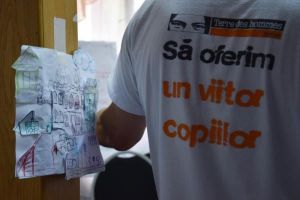
‘Now I can be whoever I really want to be’: how to inspire the youth of Moldova to choose the job of their dreams
In Moldova, you can work from the age of 15. However, according to the National Bureau of Statistics of the Republic of Moldova (2021), young people (15-34) comprise only 28% of those in work, or 243,000 people. Considering there are 670,000 young people in Moldova, only 36% of young people are officially employed.
The majority of those employed work in the hospitality industry (41,000). In second place in terms of popularity are management, education, and healthcare (39,800). Approximately 29,000 work in agriculture and industry. Young people in rural areas are, as expected, engaged in agricultural production, while those living in urban areas work in trade and management.
However, the creators of the ‘Joboteca’ project, which started in May 2021 with the support of the European Union, believe that young people in Moldova should have more opportunities to realise their potential and find the work that suits them.
The ‘Joboteca’ programme, funded by the EU, was developed by the Terre des hommes (Tdh) Moldova Foundation, which studied the needs of students from 25 schools across five regions of Moldova. The survey was conducted by the students themselves, and they collected more than a thousand questionnaires based on more than 70 interviews and 30 focus groups. As a result, a specialised programme was launched in schools, which helps students to navigate the job market, while teaching entrepreneurship and a variety of useful skills. Camps, business idea competitions and other events are organised for students.
In August 2022, the ‘School of Entrepreneurship’ was held. Twenty-five young people became acquainted with the basics of entrepreneurship, learnt to write business plans, and subsequently implemented them under the guidance of experienced mentors.
Teachers were also trained. A total of 141 teachers from partner schools of the ‘Joboteca’ project learnt how to better design the learning process and how to assist young people in choosing a job.
In November 2022, more than 600 school students met with 250 career counsellors and were able to personally try out various specialisations. The event was the first in the Relay Race Day campaign, which aims to further involve young people in society. The campaign was held on a local and national level in the context of International Children’s Rights Day.
Besides this, in 2022-2023, Terre des hommes Moldova supported 15 local organisations through the Joboteca programme, which helps young people to choose a profession, find employment, open their own business, or launch a local start-up. Organisations received grants from the European Union of €10,000 each.

“We live in a time when everything around us is changing at an incredible rate. We are surrounded by huge volumes of information, and for children and young people it’s very difficult to choose the right path. The Joboteca project goes some way to helping young people. We explain how to navigate the many opportunities, introduce them to various professions through Relay Race Day and offer them the opportunity to experience development and implementation of business ideas,” says Teodora Rebeja, Programme Manager of Tdh Moldova.
The Project involves over 3,000 young people aged 15 to 25 with a total budget of €1.1 million. The project is 90% funded by the European Union.
“We want the Joboteca project to inspire other educational establishments, but also the authorities, to take from these experiences and subsequently adopt a new best practice. We want educational institutions and the business world to work closely together to benefit young people. We want young people to have a wide range of choices when it comes to professions and vocations, where they can test their strengths to then understand and choose what suits them the most. Last but not least, we want young people to have the opportunity to realise their potential in the Republic of Moldova,” says Teodora Rebeja.
“Let’s help them find a job”
The ‘Zubrea’ association of local residents is one of 15 local organisations working with the project and supporting young people in choosing a profession, finding employment, or opening a business. The village of Zubrești where the association is based, is located about 50 km from Chisinau.
There we met with Olesya Harty, Director of the Association, which from August 2022 has run various events for local young people. In her words, in Zubrești there are very few young people under 25 working in the various establishments – “you can count them on one hand.”
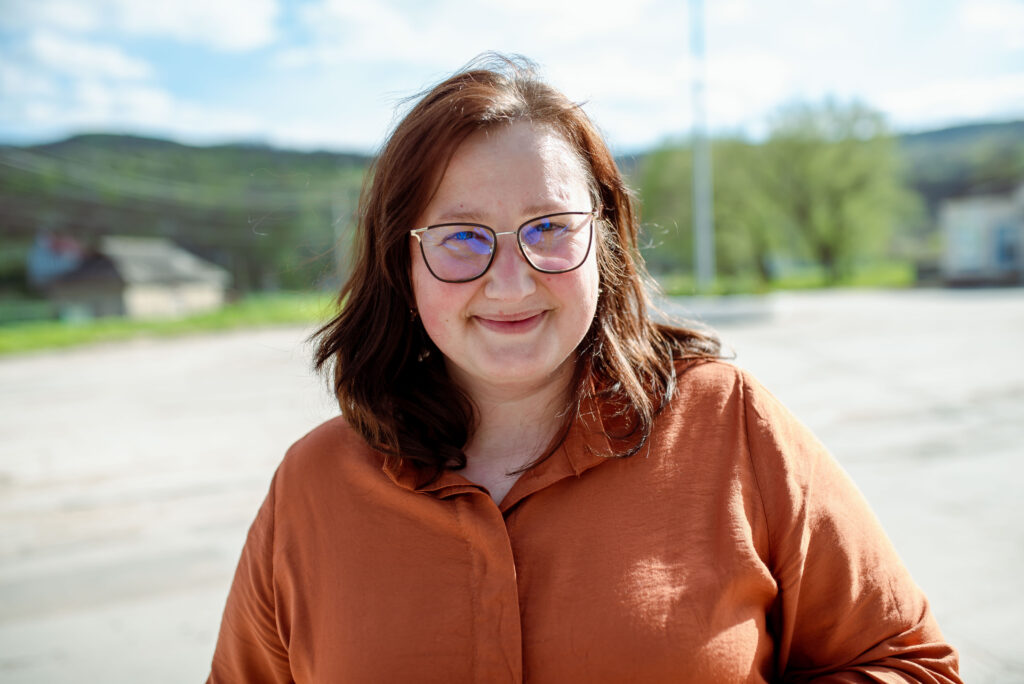
The Association of local residents was launched in 2019. Olesya says that, back then, they understood that the local budget was limited, though the needs of society are huge.
“I submitted the necessary documents to receive the financing. Our activity was geared towards young people, but we gradually expanded to other age groups. The aim is to improve the standard of living in our areas,” notes Olesya Harty.
At the moment the Association’s projects are managed by six people – two per project.
From chatting with local young people, the Director of the Association understood that they want to do something outside school. Having understood how the ‘Joboteca’ project works, Olesya decided to organise extracurricular career guidance events for young people.
Students could take part in several events: meeting with representatives of different professions, learning from their professional experience, learning how to write a resume, and finding work. They also took part in training seminars in the field of entrepreneurship. Through these courses, they worked individually and in groups, developing their business plans. One thousand euros were allocated for the implementation of the three best projects.
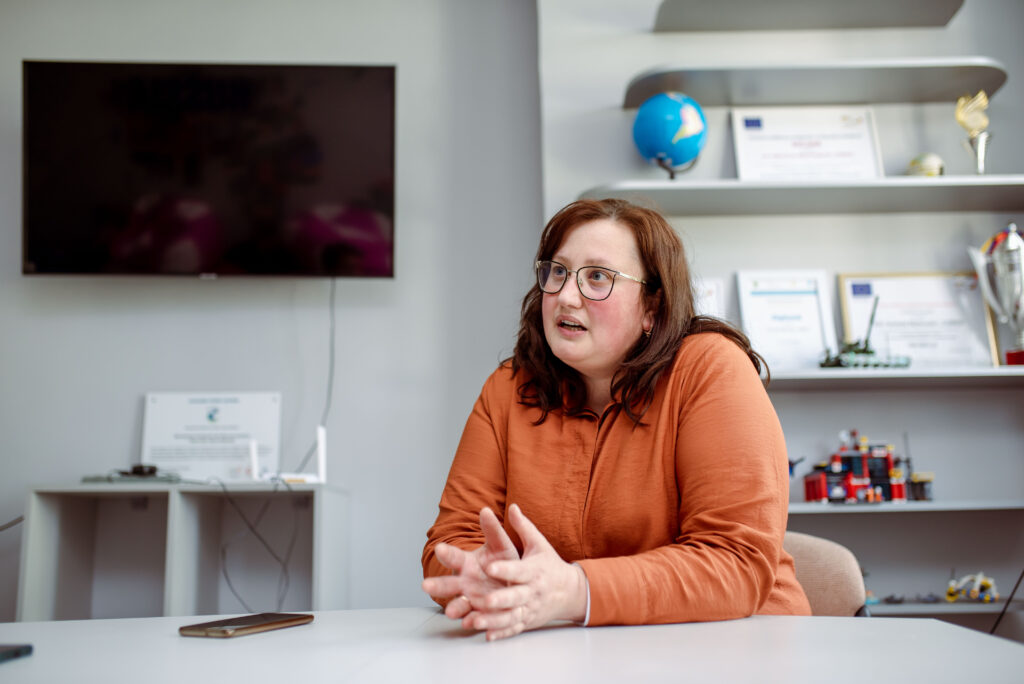
The winners of the ‘School of the Future Entrepreneur’ event were:
– Ion Bylba with the project ‘Innovation of the sports hall’;
– Ana Kostina with the project ‘Deea’;
– Jan Galushka and Maria Malich with the ‘Mary Flora’ project.
“Today we support young people in launching their business ideas. For young people it is a good opportunity to do a test drive or try out their strengths. I was happy to find out that young people have adapted their plans for the future. It was from this that there was an idea to help them find work, find their own sphere, or if undecided, to try setting up their own business,” Olesya explains.
“When we officially complete the project in June, we will still follow the progress of the young people who are preparing to launch their three new enterprises, and we will endeavour to support them. If they enjoy what they do, then it would be good to help them to get funding,” Olesya adds.
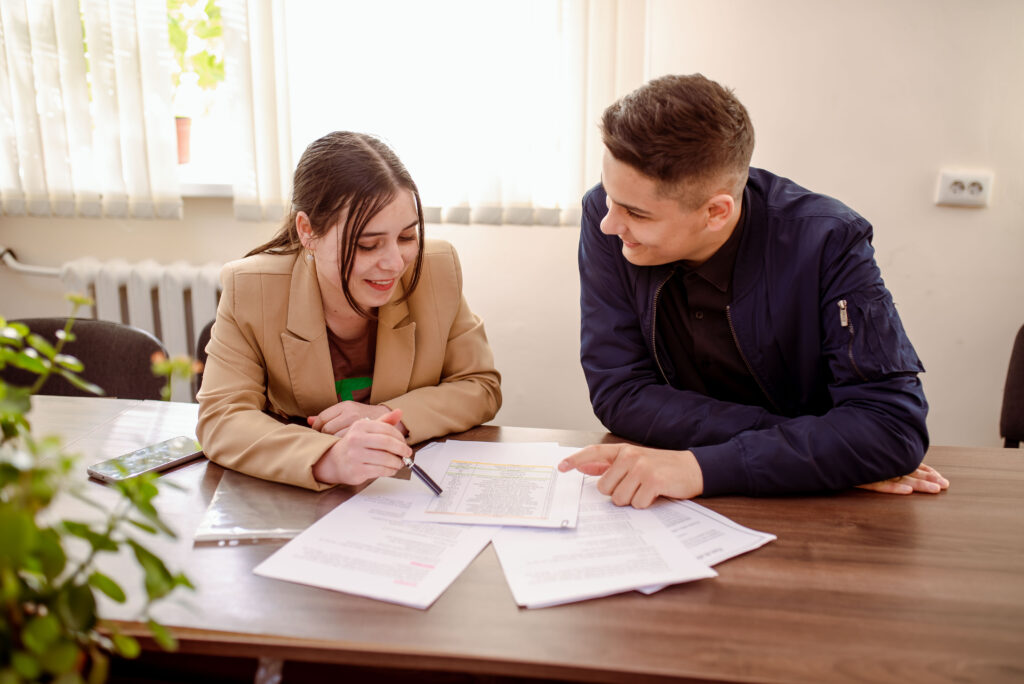
In May, young people were presented with the opportunity to work individually with mentors who advise how to be successful in opening businesses.
“The young people are now finalising all aspects and making all necessary purchases. On 30 June, everything will be ready, and the business will begin operations. In the future, if young people find themselves in need of assistance then we will be very happy to help them,” says Olesya, Director of the ‘Zubrea’ Association of local residents.
“The grant inspired me: I can be who I really want to be”
One of the projects to receive funding belongs to 9th and 10th grade students Yan Galushka and Maria Malik. The young people have been working hard, tending to flowers in a greenhouse and selling them to people both in their village and in the surrounding areas.
Yan and Maria are examples of ambitious young people who successfully implemented their business idea, having studied and meticulously devised a business plan that they then put forward to the evaluating committee. The business will be opened from scratch.
Initially, Maria had intended to propose the project individually, but she was joined by Yan on the journey, who also liked the concept. They noticed that it was not possible to buy bouquets of flowers in the village. With this idea of starting a florist, they took part in the School of the Future Entrepreneur.
“There were often occasions where I would need flowers at short notice, and I had to go to Străşeni for them, which is quite far away. We weren’t sure if florists would work in Zubrești, if the flowers would spoil or if the prices would be high,” Maria tells us. Yan added that there is only one flower shop officially registered in the region of Străşeni.
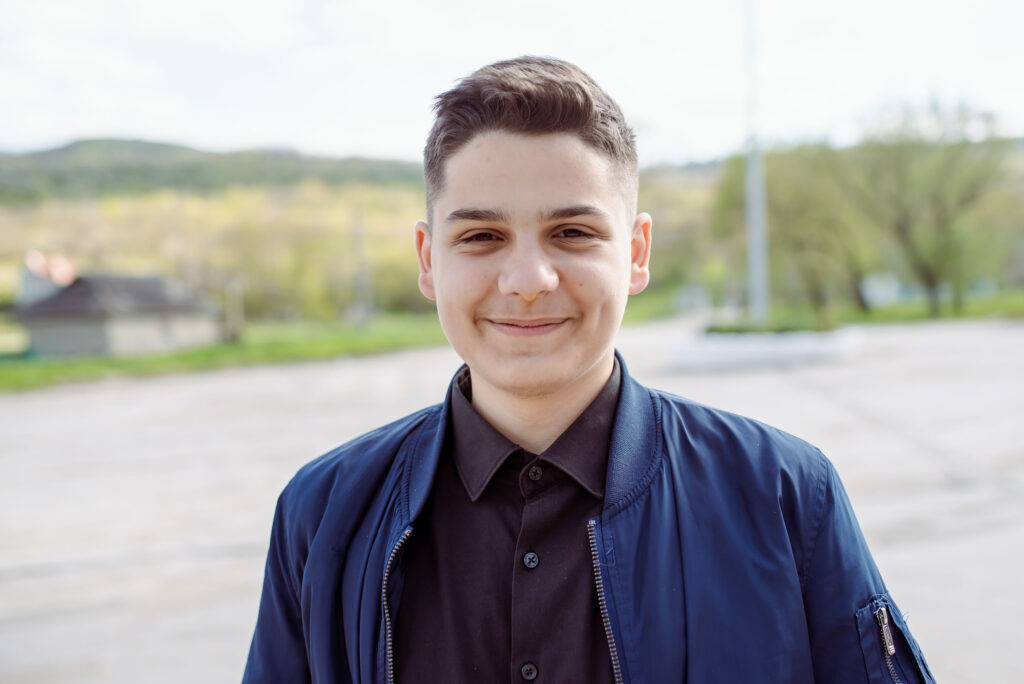
The young people say that they will offer two types of service: either delivering straight to clients, or with clients coming to buy the flowers in situ.
Yan and Maria currently have two greenhouses: one will be located at Yan’s house, and the second at Maria’s. This is their contribution to the project – land on which the greenhouses will be set up.
“Delivery will be free. Of course, both options are profitable – purchasing direct or with delivery. The only difference is that people can choose the flowers themselves,” says Maria.
Yan says they plan to sell several types of flowers. “This of course depends on the season. In Spring – tulips, and in Summer there will obviously be more types of flowers, perhaps roses. For the sake of variety, we will also produce bouquets. We began to sow asters, cornflowers, and other types. We do not intend to limit ourselves – we want to grow and expand.”
The young people say their parents will also help them as and when required, but that they will grow and cultivate the flowers independently.
“For example, I have experience because at home we have greenhouses where we grow various vegetables, cucumbers, tomatoes, etc. I know how to plant them. We also have flowers in our garden. I have seen how it’s done and I know how to take care of them,” says Maria.
Yan considers that such projects are very important for local young people but also for the wider community. “Young people are working together, developing new business skills and, in this way, developing themselves. Moreover, if young people receive these mini grants, then they will be able to do something for the benefit of the village.”
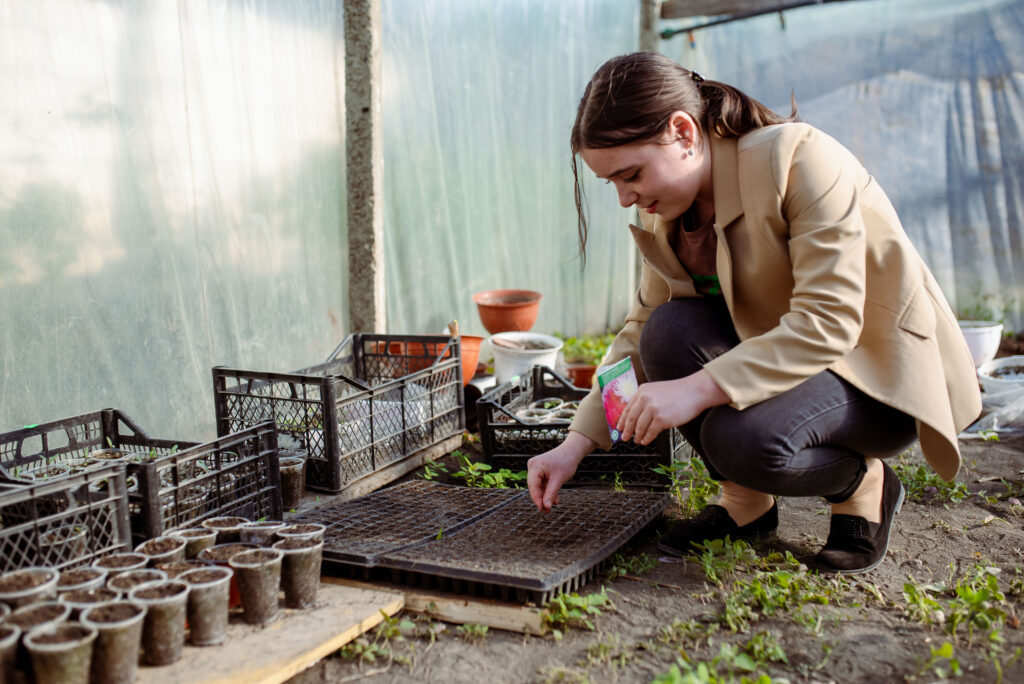
“Thanks to these projects, young people are able to come out of their comfort zones and concentrate on who they want to become. Such opportunities are not available in every area, and we are therefore fortunate. Training sessions on entrepreneurship helped young people to think about the choice of career. Thanks to this programme, I now know that I want to become a business owner. This grant has inspired me – I can be who I really want to be,” says Maria Malik.
Another participant of the School of Future Entrepreneurs is Ana Kostina with her project ‘Deea’. She also won a mini grant of €1,000 to develop her business. Ana produces handmade accessories for children.
“I’ve been working on this for two years now. With this project I started to discover myself, and now I have the opportunity to expand my business. I can also sew various clothes for children. This project is a huge help because with this money I can buy a sewing machine, and with the machine I will be able to produce more items – this is the overall aim. The training taught me not to give up. Anyone can be successful if they have desire and will.”
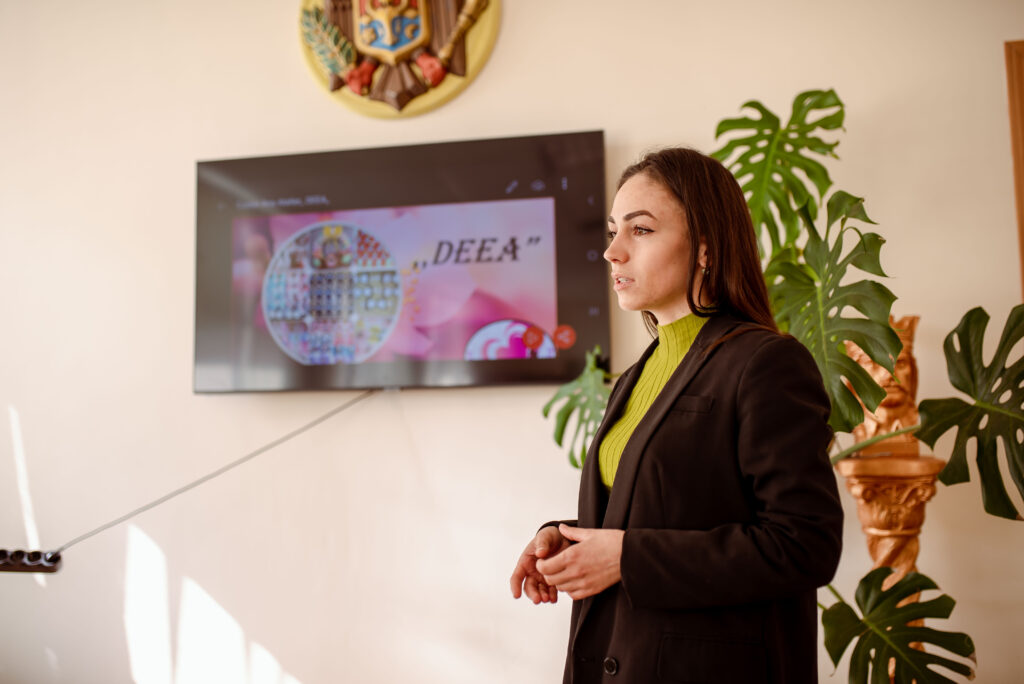
According to the Director of the ‘Zubrea’ Association of Local Residents, Olesya Harty, nearly a hundred young people from the region have taken part in events and courses with the help of the ‘Joboteca’ programme.
She believes young people must take a more proactive role in decisions at local level.
“I see this as absolutely necessary, and projects such as ‘Joboteca’ are really important. Young people are a valuable resource. I think we need to dedicate more projects to them, encourage them, even create their own councils. They have some really great ideas and solutions to some problems which were not thought of before.”
Author: Petru Beșleaga
MOST READ
RELATED PROJECTS
SEE ALSO

No, time is not on Russia‘s side

How to open an art business in Moldova: the experience of Alexandra Mihalaș

Be one step ahead of a hacker: check simple cybersecurity tips!
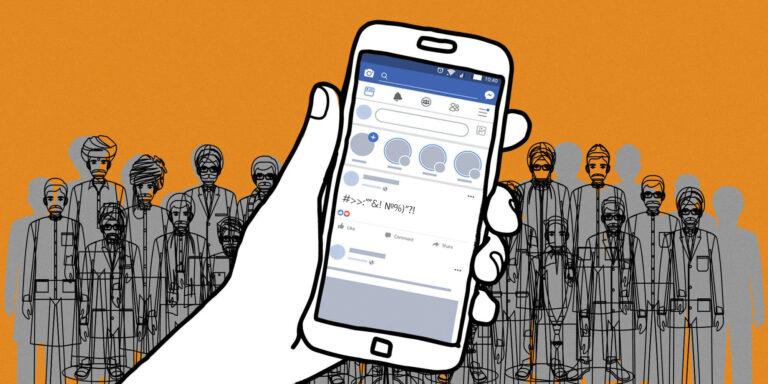
How to act and move on: strategies for women facing discrimination and online harassment
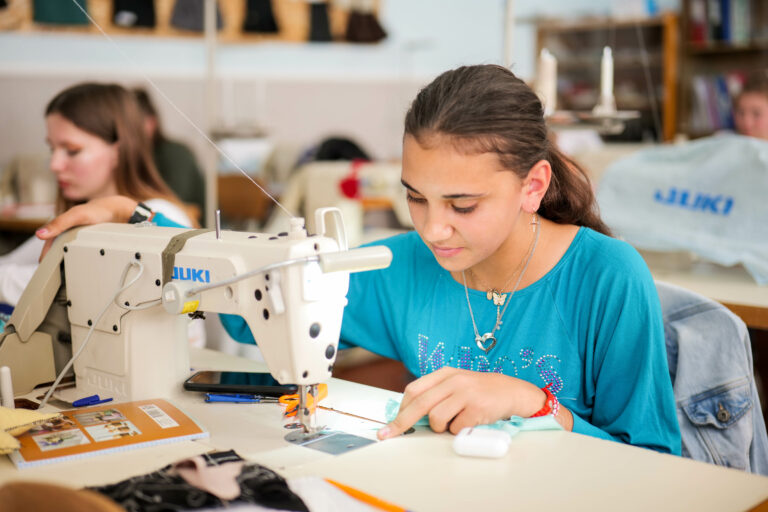
‘Learning is not a process but a journey’: the example of a school in Orhei
More campaign pages:
Interested in the latest news and opportunities?
This website is managed by the EU-funded Regional Communication Programme for the Eastern Neighbourhood ('EU NEIGHBOURS east’), which complements and supports the communication of the Delegations of the European Union in the Eastern partner countries, and works under the guidance of the European Commission’s Directorate-General for Neighbourhood Policy and Enlargement Negotiations, and the European External Action Service. EU NEIGHBOURS east is implemented by a GOPA PACE-led consortium. It is part of the larger Neighbourhood Communication Programme (2020-2024) for the EU's Eastern and Southern Neighbourhood, which also includes 'EU NEIGHBOURS south’ project that runs the EU Neighbours portal.

The information on this site is subject to a Disclaimer and Protection of personal data. © European Union,
